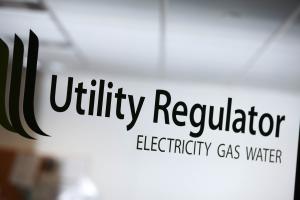
Today, Utility Regulator Chief Executive, John French, warned consumers in Northern Ireland that they unfortunately will face higher energy bills this winter. This increase is due to a continuing rises in wholesale energy costs across UK and European markets.
“Over the last year, we have witnessed record increases in the prices of wholesale gas, coal, oil, and carbon on UK and European markets. Wholesale prices have rebounded, after economies have started to recover from the initial stages of the Covid-19 pandemic. In addition, energy markets have experienced declining UK and European natural gas production, and a reduction in gas supplies from Russia and the USA, all of which have also contributed to record price increases.
“These wholesale price increases will unfortunately impact consumers in Northern Ireland, as wholesale energy costs make up around half of both our gas and electricity bills.
“Therefore, there will be increases in the regulated gas tariffs (SSE Airtricity and Firmus Energy) in Northern Ireland. These will be announced in early September, once our review has been completed. It is likely that these tariffs will increase from the current average annual household gas bill of around £515 per year, to be closer aligned with average annual gas bills in GB (£625) and ROI (£782).
“However, we do not expect any further change in the regulated electricity tariff in 2021. Power NI increased their regulated electricity tariff for domestic consumers back in July by 6.9%. This meant that their regulated electricity tariff increased by £39 per year, to provide an average household bill of £610 per year. In comparison, GB and ROI have recently announced further electricity price increases, making their average annual household electricity bills £810 and £865 respectively.
“I recognise that any price increase is unwelcome, especially at this time with many households and business struggling to recover from the Covid-19 pandemic. Whilst we have no control over wholesale energy markets, the Utility Regulator, and partners such as the Consumer Council have been working with industry to see how we can mitigate some of the effects of these increases.
“For example, we have approved a reduction in network gas costs, which will reduce the impact of wholesale gas price rises to an average households by £20 a year. In addition, we are continuing to work with energy suppliers who provide regulated tariffs, to ensure their prices fairly reflect movements in the underlying wholesale markets, and any future reductions are fully passed onto consumers.
“Furthermore, I have recently written to all energy suppliers to ask them to actively support and protect consumers as tariffs increase and as winter approaches. In doing so, I have re-iterated the need for energy companies to have a sympathetic approach to customers’ ability to pay, and I have reminded suppliers of their obligations to avoid customer disconnections and consider other approaches to protecting people in debt. Finally, I have asked energy suppliers to consider if they can either individually, or collectively, establish funds to help customers in immediate hardship this winter.
“Whilst I fully recognise that these steps will not offset the impact of price increases, we will continue to work with government, partners like the Consumer Council and the energy industry to see what more can be done to protect consumers in light of the significant price increases.
“Consumers who are worried about the impact of these higher prices should contact their electricity or gas supplier as soon as possible, to discuss the options available to them. In addition, there are also a number of agencies who can provide free and independent advice to households, including Advice NI, Christians Against Poverty, and Money and Pensions Service.”
ENDS
For further information, please contact Greg Irwin on 07794 965 911.
Notes to editor
- The Utility Regulator is the independent non-ministerial government department responsible for regulating the electricity and gas industries and water and sewerage services in Northern Ireland.
- Further information on the support available to energy customers is available at www.nidirect.gov.uk/covid-19-energy-debt-advice and within the consumer protection section of the Utility Regulator’s website www.uregni.gov.uk. The Consumer Council’s website has energy advice for consumers during these difficult times and also provides an independent energy price comparison tool to help consumers save money.
- A number of agencies can provide free and independent advice, including Advice NI, Money and Pensions Service and Christians Against Poverty. There is also more information on support for natural gas customers from the new www.naturalgasni.com website.